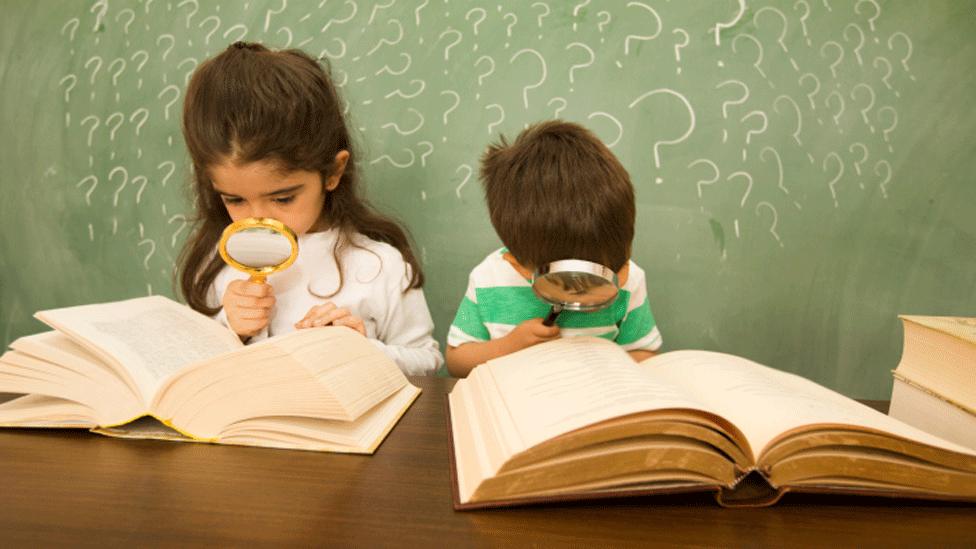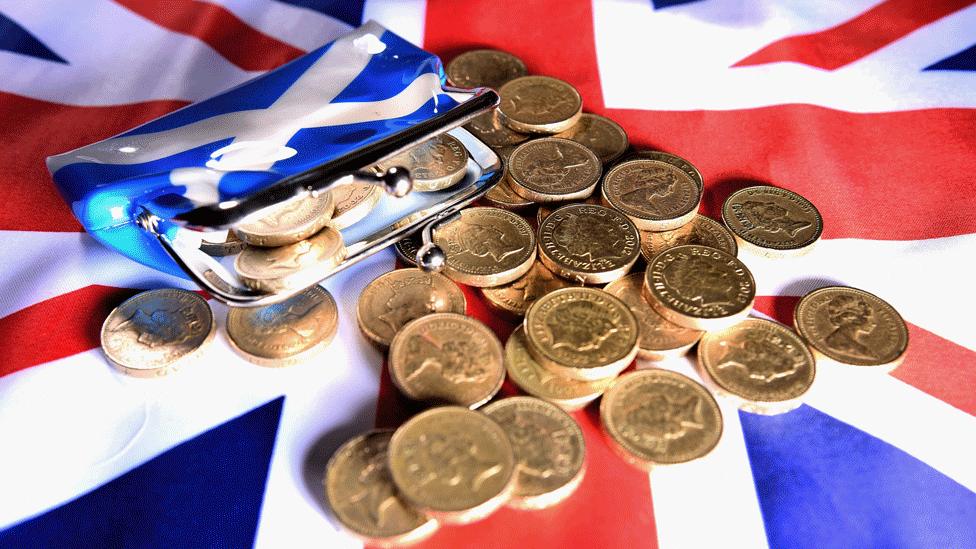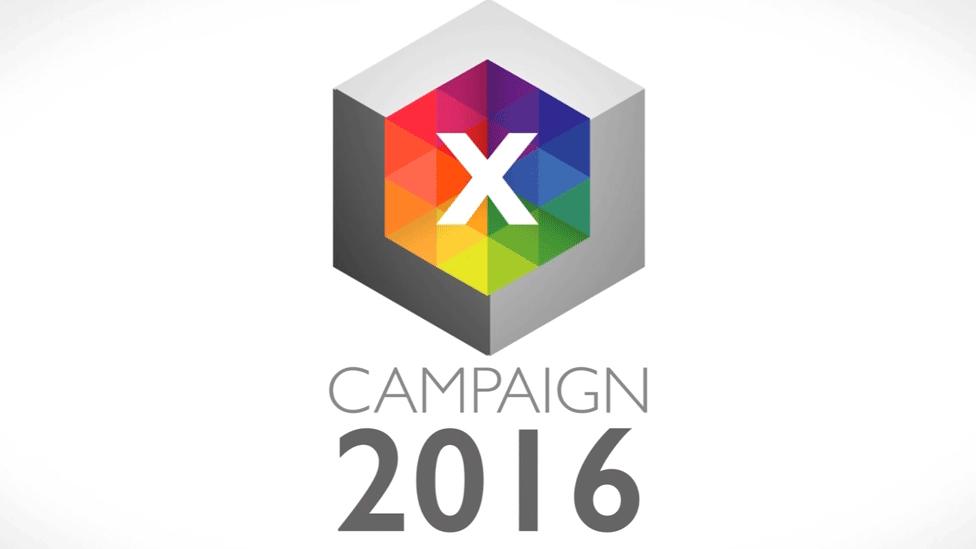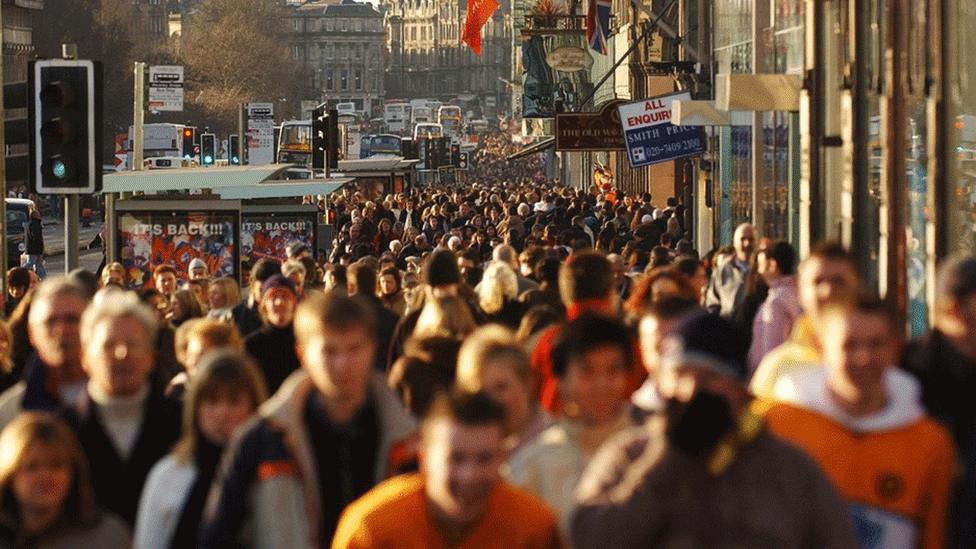Holyrood 2016: What are the clues in BBC Scotland's election poll?
- Published

Political surveys lay clues to what voters are thinking ahead of an election. Here, I highlight some interesting aspects of a poll commissioned by BBC Scotland and carried out by my staff at Ipsos MORI Scotland.

Voters in Scotland go to the polls on 5 May in the most significant Holyrood election since the new devolved parliament was established in 1999.
This election is the first to take place since the new powers, including for setting income tax levels, were transferred to Holyrood following the recently enacted Scotland Act, external.
These new responsibilities mean that the parties have taken positions on some issues for the first time in a Holyrood election and will mean that issues of tax and welfare will be central to the campaign.
The Ipsos MORI Scotand, external poll provides clues about the priorities of voters as they weigh up their decisions ahead of the election.
In broad terms, when it comes to using these tax powers to raise additional money for public spending, Scots are more supportive of targeting those with the deepest pockets rather than increases across the board.
As far as tax is concerned, the single most important priority for Scots is to increase tax for the wealthiest in the country.
Among the four tax proposals put to respondents, increasing the top rate of tax, paid by those earning over £150,000 per year, from 45p to 50p was seen as the greatest priority, receiving an average score of 7.3 out of 10.
As one might expect, support for this measure is highest among older Scots (7.8 out of 10 among those who are retired) and among those who live in the most deprived neighbourhoods in the country (7.8 out of 10).

The Scottish Parliament is receiving more powers over the way it can spend and raise money
It is however instructive to note that, among those in the most affluent neighbourhoods, the measure receives a score of 6.6, suggesting it still has some support in these areas.
Support for other measures which would result in different tax rates in Scotland is lower than support for keeping rates the same in Scotland and England.
The widely debated proposal of increasing rates of income tax by 1p receives an average score of 6.2, while the plan to keep the 40p income tax threshold at its current level, rather than raising it as outlined in the UK budget, is significantly less popular with a score of 5.3.
At the same time, the principle of keeping income tax rates the same here as in England receives an average score of 6.5 out of 10, suggesting that there is some support for being modest in differentiating tax rates.

BBC Scotland election poll
Who? - 1,002 voters aged 16 and over
When? - Carried out between Friday 18 March and Tuesday 29 March
How? - On the telephone with data being weighted by gender, age, working status, housing tenure and region.
By? - Ipsos MORI Scotland

The issue of council tax rates is also key to the Holyrood campaign and, once again, there is significantly more support for any increases to be focused on the wealthiest rather than across the board on all council tax payers.
With an average score of 6.2 out of 10, increasing council tax for those in more expensive homes is seen as a significantly greater priority than increasing the tax for all who pay it and spending the money raised on schools.
Both of the welfare proposals tested in the survey receive high priority scores.
In particular, doubling the amount of free childcare for three and four year-olds is popular with an average score of 7.3 out of 10, increasing to 8.2 for the youngest Scots (16-24) and 8.1 among those who live in the most deprived communities.
The proposal to give carers of people with disabilities more in benefits than carers in the rest of the UK is seen as less of a priority though it still has an average score of 6.4 out of 10. As with the childcare proposal, this measure has highest support among Scots who live in the country's most deprived neighbourhoods.
As with all elections, the party that can demonstrate economic competence with voters is likely to reap the electoral rewards. This survey will give them all clues as to how their messages are likely to be received during the weeks of campaigning ahead.
The first part of our poll looked at your views on income tax, council tax and welfare.

BBC Scotland Holyrood election 2016 poll

Eight questions on tax, council tax and welfare (plus mean score)
Increase the top rate of income tax for those earning more than £150,000 a year from 45p to 50p - 7.3
Increase the level of free childcare for 3 and 4 year olds from fifteen to thirty hours a week in order to help parents go back to work - 7.3
Keep the rate of income tax for people in Scotland at the same level as for people in England - 6.5
Give those who care for people with disabilities in Scotland more in benefits than those elsewhere in the UK - 6.4
Increase all rates of income tax in Scotland by 1p in the pound and spend the money raised on schools and colleges - 6.2
Increase council tax for those living in more expensive homes in Scotland - 6.2
Keep the income level at which people in Scotland begin to pay the higher 40p rate of income at £42,385 even if people in the rest of the UK only start paying the 40p rate on higher incomes - 5.3
Increase all rates of council tax by up to three per cent and spend the money raised on schools - 5.1
All figures are mean scores based on answers provided between one and 10. One means the policy should never be put in place, and 10 means that it is very important and should be put in place quickly.
- Published4 April 2016

- Published4 April 2016